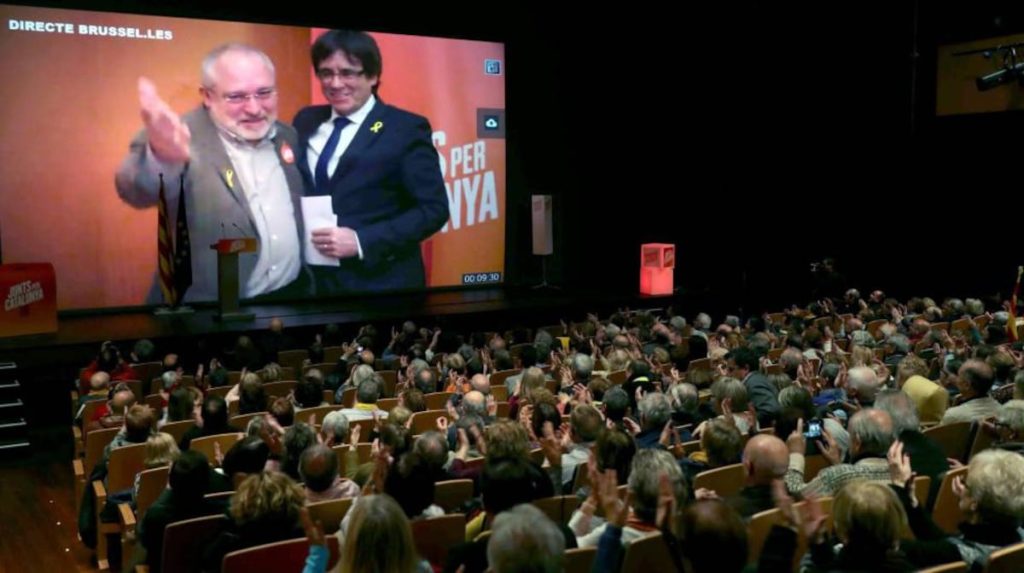The Constitutional Court has granted protection to the PSC in its appeal against several decisions of the Catalan Parliament that allowed deputy Lluís Puig (Junts) to vote remotely in the plenary sessions of the autonomous Chamber in the last legislature. The sentence annuls those agreements and concludes that they violated the rights of the socialist deputies by creating an exception in the voting system that benefited another political group: Junts. The court emphasizes that the mandatory nature of in-person voting has exceptions, but these do not apply in the case of “someone who has voluntarily decided to evade the action of the Spanish criminal jurisdiction and who has a search and capture order”. The ruling only has effects from the moment of its notification and publication, not retroactively. Therefore, the votes in which Puig would have participated with that remote vote will not be altered.
The decision comes just a few days before the establishment of the Parliament on Monday, June 10, and the start of the new legislature resulting from the elections on May 12. Both Puig and Junts leader Carles Puigdemont were elected deputies in those elections, but both live outside of Spain, where they fled in 2017 to avoid being tried for their role in the independence process. They could not, therefore, use remote voting for the election of the Mesa on Monday, unless the Chamber ignores the Constitutional Court’s ruling. The decision on whether to comply with the sentence will likely be made in that first session by the age table, composed of a Junts deputy, an ERC deputy, and a Vox deputy. The situation of ERC deputy Rubén Wagensberg, who is on sick leave and is in Switzerland, is different because illness is a reason to delegate voting.
The Constitutional Court’s ruling, which was announced on Wednesday in a statement, was adopted by the First Chamber last Monday, unanimously. The rapporteur was the progressive sector magistrate María Luisa Segoviano. The court agrees with the deputies of the socialist parliamentary group in the previous legislature who challenged the agreements made by the Chamber’s Mesa on two occasions: April 19, 2023—when it accepted Lluís Puig’s remote vote until the end of that session period—and April 18, 2023—when it approved a transitory regulation of remote voting, lacking explicit support from the Rules. The Court has considered that the Mesa thus violated the rights of the challenging deputies and, therefore, annuls all the contested agreements of the Mesa.
The Court estimates that the approval of that regulation by the Parliament was “instrumental” and had an “exclusive purpose” of “trying to give the appearance of normative coverage to enabling remote voting for Mr. Puig i Gordi to evade previous pronouncements of this court, but without a real vocation of generality”. The guarantee body has previously accepted remote voting in other cases, but emphasizes that such an exception cannot be granted to in-person voting to “someone who has voluntarily decided to evade the action of the Spanish criminal jurisdiction and who has a search and capture order”, as was the case with Puig. However, the resolution emphasizes that “those acts that have been adopted with the remote vote of that deputy during the time in which that authorization was in force” are not annulled.


